|
What... that? That's my crystal ball. Like it? Nice looking thing, isn't it. Got it three years ago, off Amazon. I keep it on the window sill there so it catches the light in the afternoons. As you're not from round here, I can let you in on a little secret. Promise not to tell? Crystal, my arse! It's plastic resin, that. Convincing, eh? You'd never know—well, unless you touched it with your fingers of course—and I make sure the punters never do, so that's the illusion intact. I do the fortune telling tent, you see. Church fête, every summer. Been at it for four years now. Took over from Mrs Horniman when she passed. Not that I was particularly gasping for the job, but that's the thing with village life: you get volunteered for stuff. Everyone's expected to muck in; get involved; do their bit—and it's always for a good cause, so... let's just say refusal isn't really an option. I put my foot down on one thing, though. Mrs H—lovely old dear, bless 'er—she did it as "Gypsy Rose". Dressed the part, y'know: all bells and charms. Really hammed it up. Cod Mittel-european accent, the works. It's pretty dingy in that little tent, but y'know, I swear she even darkened her skin with something too. God, when I think about it now... Anyway, I was having none of that. I'll be as mysterious as you like, I said—wear a black veil and all sorts—but you're not calling me "Gypsy" anything. I don’t have a drop of Roma blood in me, and I don’t feel comfortable trading in racial stereotypes, no matter how good the cause. They didn't like it, of course. "Not a proper fête without the Gypsy" they said. "What would Mrs Horniman say? No Gypsy, indeed! It's not traditional." Cardinal sin round here, that is: not sticking to tradition. You could slaughter babies in the street here and nobody would bat an eyelid so long as there was a tradition of baby-slaughtering. I know... that's daft. But you get my gist. I stood my ground, though. I'm an incomer, see—only been here 20 years—and I've got a bit of a reputation. The village snowflake. Too metropolitan for this lot, anyway. Mind you, it's not hard to get a reputation round here. Pop into the shop, ask Maureen if she could order you in some Fair Trade Tea, and that's you: marked for life. Dangerously woke! So anyway... I took on the fortune telling. Mrs H used to read palms, so that's what I did to begin with, just that first year. Just the once. I switched things up after that: got the fake crystal and haven't looked back since. Well... tried not to. You can't see my face at all behind the veil, but it's not like anybody's fooled. It's only locals come to the fête, anyway. They all know it's me and they all know it's bollocks—just a bit of nonsense. "Cross my palm with silver" (actually we've got a card reader now—there's progress!) and I give 'em the flim-flam. You know the kind of thing: big on mystery, low on detail, preferably with a whiff of a positive outcome. Keep it coming and keep it vague, that's my style. Even my tall dark strangers are conveniently gender non-specific nowadays. That's the reason I changed to the crystal ball. To make all of that easier. That first year, after Mrs H went, when I was doing the palms... well, it was difficult. Saying the right things. Keeping it vague, like I said. It was a struggle. I struggled. I hadn't been expecting it, you see. That's why I had the seizure. I told everyone it was the heat in the tent—hadn't drunk enough water, silly me!—but it wasn't. I thought changing over to the crystal ball would solve it, but it didn't. Nothing could. By then it was too late. I'd handled them, you see—their hands. Everybody's hands. The whole bloody parish. That's why I'm selling up. I can't take it any more. I just can't. Can you imagine, even for one minute, what it's like, being me? To have to live here, knowing what I know? Having to smile at your neighbours, make small-talk with them in the shop, the street, the pub, all the time knowing exactly when every single one of them is going to die? ...and how that death will happen. In detail. The whole thing, running like a projector inside your skull. 3D. Hi-definition. Maureen behind the counter, so looking forward to grand-children: she'll never see fifty. That new young couple who've renovated Lower Farm Cottage: he doesn't know half as much about electrics as he makes out. And little Gemma. Oh sweet Jesus Christ, little Gemma... Sorry. Sorry! Dear me—what am I doing? You'll have to forgive me. I have these moments now and then. Where were we? Oh yes: been viewing the house, haven't you? What do you think, then? Ooh, I'm not supposed to ask that, am I? Bad form. Not supposed to put potential buyers on the spot. Make you feel awkward. Seen everything you want to, though, have you? Right you are. Thank you so much for coming. You'll leave some feedback through the agent, won't you? Good. Yes, it's been lovely to meet you, too. Erm... sorry—I'm not being rude, but... would you mind awfully if we didn't shake hands?  Retired actor Ken Cumberlidge was born in Birkenhead, UK and cut his performance teeth on the Liverpool pub poetry scene of the 1970s. These days Ken is based in Norwich, but can be lured out of cover by the promise of good company and an open mic. This has led him to become an habitué of the slam/spoken word scene. He has twice won a place as finalist at the Hammer+Tongue Cambridge regional slam championships, 2018 and 2019. Ken writes about love, sex, nature, loss, personal identity and queerness, with an occasional foray into the eerie and macabre. Poke him with a sharp enough stick and he may even wake up long enough to get shouty about politics. Ken's work can be found variously in print and online (Algebra of Owls / Allegro / As Above So Below / The Fiction Pool / Fragmented Voices / Impspired / Ink Sweat & Tears / Message In A Bottle / The Open Mouse / Picaroon / Pulsar / Rat's Ass Review / Runcible Spoon / Songs of Eretz / Spilling Cocoa over Martin Amis / Strange Poetry / Snakeskin / Talking Soup ...and now Timber Ghost Press) and performances of his material can be found on YouTube and Soundcloud, via his linktree: https://linktr.ee/kencumberlidge Our next guest post comes from John Ryland. What's scarier, a monster that defies imagination? Or is it the next door neighbor who only comes out at night and stares at your window for hours? John Ryland delves into this topic and more... sometimes, real life is scarier. Horror in Real Life by John Ryland People aren't afraid of being alone in the dark. They're afraid of NOT being alone in the dark. Some of the scariest moments of my life have been in my own home, alone, late at night. There's a noise outside. It could be the wind, or it could be a masked murderer. There's really only one way to find out. I love horror movies. I love the monster movies too. They're scary, but not horrifying. For me, the possibility that my monster could really exist is what makes it scary. A psychopathic wanderer, a neighbor with an obsession. Things that probably won't happen, but could, terrify us. Let's face it, there's probably not going to be an alien invasion or a zombie hoard attacking your house, the notion is scary, but it won't keep you up at night. The fact that someone might be outside in the dark, watching you, definitely will. When I write, I always try to create normal people. People with flaws that we can identify with. A tick. A mannerism. That makes them real. Then I like to take those ordinary people and put them in extraordinary situations and have them react. I think people find themselves rooting for the normal people and that invests them emotionally in the work. It's been said that if you can get people to invest in your characters, then make them uncomfortable, then stir their emotions, then bring them to a reasonable conclusion, you'll have a fan for life. That's what I hope to do. I also like to make people wonder if I'm okay. I love to write big, dramatic scenes with angst and turmoil that make people make faces while reading. If a reader's face never changes during a book, I'd consider it boring. I want to make your facial expression run the gamut of emotions, even if you end up wondering if something might be wrong with me, upstairs. There's not, clinically speaking anyway. I love the "Aha!" moment, when the characters piece things together and realize that not only is it possible for this strange thing to be happening, but that it is indeed happening to them. There are so many strange things in this world, ramping them up just a bit for literary purposes doesn't make them less real. But above all else, I want to entertain. Rollercoasters are fun, whether literally or in a book. They get your heart beating faster, surprise you, scare you. They take you away, if only temporarily. I hope I am able to do that because ultimately, without readers, we're all just a bunch of nuts banging away at a keyboard for no reason. This article originally appeared on John's blog. You can find it here: https://www.gspressbooks.com/post/horror-in-real-life John Ryland lives in Northport Alabama with his wife and two sons. He has had ten short stories published in journals over the last two years. John has also self published two novels and a collection of short stories, as well as a poetry chapbook. He is currently under contract to have two books traditionally published in 2022. Find more of John's work at gspressbooks.com or follow him on social media.
https://twitter.com/johnryland10 https://instagram.com/ryland364 https://facebook.com/JRylandtheWriter The clock chimes down the hall at the first stroke of midnight, and my eyes bolt open. The sound of footsteps echoing begins. They’re coming... I barely have time to register that thought as the door bursts open. I cover my face, attempting to pull the covers over to protect myself, but I know it’s no use. They pull the blankets off the bed, leaving me exposed in my nightgown only. Their icy hands grip my wrists and ankles, pulling my limbs to the four posts to tie to as I wriggle and writhe. “No, please. Not tonight. Please. I’m so tired. Please…” I beg and whimper, but they do not stop. The room is mostly dark except for the flicker of their shadows on the white walls. Cold, leather straps tighten around my wrists and ankles, spreading my body open. Snickering filling the room. The belts squeak against the posts as they’re stretched. My blood flow, restricted by the taut leather, is causing my heartbeat to thump loudly through my hands and feet. “You know the drill. Strip her and cover her mouth,” one of them shouts. Stiff fingers rip at the seams of fabric in the nightgown. I’ve lost count now that they have destroyed how many. I always wake up with a fresh one each day, ready to go. The laughter and rip echo loudly as the tears water as their hard fingers pull at my skin. The smell of sterile alcohol hits my nose, and I unsuccessfully fight and wriggle away. Cold, hard fabric is rubbing my body down. There’s no care given as they scrub my skin against the marks from previous restraints, scratches, and bruises I’ve received from trying to fight them off. “Why do you keep fighting us?” the lead one says, “You know it’s hopeless. We always come for you. You can’t escape us. No matter what you try… it’s been how many days, months, years of this? How long can you last?” I grit my teeth, seething. This one’s voice is always the one that sets me off. Always knowing precisely what to say to push the buttons that get my rage up. I stare unflinchingly as the rest of them finish wiping me down. “Just shut up,” I reply, spitting in his direction, “Leave me alone.” “Now, now, that’s not very nice. Whatever happened to the nice little girl we used to know? The one who was always so obedient? Following directions and trying to please everyone?” “She’s tired of playing that game. That got her nowhere. That got her nothing and NO ONE. She was just a stupid child who thought she could prove that people should love her,” I scream, pulling at my restraints, “She had to learn that you can’t make people love you!” “Tsk, Tsk.” he replies, “Shut her up... let’s remind her of her place.” A slimy, cold cloth drapes over my face as the sound of running water starts. I’m flailing my head back and forth to get it off, but it’s no use. The first splash of liquid hits, and my skin prickles in shock and goosebumps. The water is freezing, and it hits my lungs like a hot poker. “You’re worthless. No one will ever come and rescue you. You aren’t worth saving,” their voices say as the water rushes over my face again. “How could anyone ever love anything like you? It’s why they always leave. They get close enough, and they see what we see. You’re disgusting. Dirty. Deranged.” My heart is pounding in my ears, and my chest heaves for air. The tightness constricts around my throat, causing my mouth to produce garbled wheezing. My vision is blurring as stars twinkle under the cloth. “You were born wrong. It’s why they couldn’t love you. They could see you were evil, different, from the moment they placed you with them. No matter what you do, no matter what you try, you will always be that unlovable thing.” Gasping and coughing are the last things I remember as I pass out. Blackness envelops me but offers no reprieve. I don’t know how much time passes, but I know a sharp, hot blade glides along my ribs, creating small tears into my skin as one of them pounces on my stomach. The force pushes the water from my belly, contracting acidic, putrid water to burn up my esophagus out onto the bed. A still silence waits as I catch my breath, hoping somehow we’re done until the cloth goes back on my face, and it starts again. “Worthless. Useless. Better off dead. Alone. Forever alone. Unloved. Unlovable. Evil.” The chorus goes on as the cycle continues: icy water dumping on my face until I pass out and am woken again. It’s non-stop for hours, it seems, until suddenly a bright fluorescent light flashes in front of my eyes. “Miss! Miss!” A voice calls to me, waving a hand slowly in front of my face. I look around as the bedsheets are wrapped and tangled around me like a python squeezing its meal. My arms and legs are untied, and I follow the vision of the hand waving to a nurse in blue scrubs, hand on her hip, tapping her foot. “Miss West,” she says, “we’ve talked about this. You need to breathe. In. Out. C’mon, do it with me.” Slowly, I follow her words, inhale and exhale, inhale, exhale. “You know, you’re here for a reason. Few get a chance to face their demons with medical help. Many people get embarrassed about depression and anxiety, Miss West, but that is no reason for you to keep suffering at night from panic attacks alone. I told you if you feel them coming on, you need to just press the button, and we can give you the medication the doctor prescribed.” I know she’s right. I lost last night’s battle. But that doesn’t matter. I’m here to learn how to win the war.  Victory Witherkeigh is a female Filipino author originally from Los Angeles, CA, and currently living in the Las Vegas area. Victory was a finalist for Killer Nashville’s 2020 Claymore Award, an Honoree for Cinnamon Press’s 2020 Literature Award, and Wingless Dreamer’s 2020 Overcoming Fear Short Story award. Her work has appeared in both online and print literary magazines and genre fiction publications of horror and dark fantasy. She has her print publications in a horror anthology, Supernatural Drabbles of Dread, and a literary short story in Overcoming Fear, through Macabre Ladies Publishing and Wingless Dreamers. https://teikitu.com/people/victory-witherkeigh/ I can’t remember the first time I went to a bookstore. I mean a store whose central product is books. Growing up in rural parts of Utah, I had the Scholastic Book order forms, like so many others of my generation. I don’t think Scholastic gets the credit they deserve for being a publisher of gateway horror. My first copy of Scary Stories to Tell in the Dark came from them, as did the gloriously skeletal—but ultimately disappointing--The Train by Diane Hoh. My memory wants me to believe Scholastic published Christopher Pike, too, but I never bought any of those. Two other things found in the book order form helped make me the horror writer I am today. I still have the first copy of Edgar Allan Poe works I ever bought. The Raven and Other Poems was an Apple Classic from Scholastic and, as you can imagine, the cover was gloriously purple. I must have known something about Poe before buying it, but I don’t remember. “The Raven” hypnotized me and “Annabelle Lee” made me cry, although I didn’t fully understand it at the time. I had not read much poetry outside of Shel Silverstein—a good precursor to reading Poe, in my opinion—and so it took some getting used to the format. The slim volume was only poetry and so I would soon search out the short stories and began to notice how often Poe showed up in other media. I remember one episode of the sitcom Cheers in which Carla invoked the spirit of “The Tell-tale Heart” to freak out someone else at the bar. Later there would be The Simpsons epic version of “The Raven” pitting Homer against Bart the raven. Around this time, ages nine to 13, I truly began to embrace horror. I had been a casual fan and a sufferer of nightmares. But my birthday is on Halloween, and I soon sickened of other people scaring me. It was my turn. Re-enter the Scholastic book order form. During my sixth-grade year, Scholastic sponsored a contest to complete an unfinished R.L. Stine story. Later, as Stephen King took over my reading life, I learned that King had done the same thing with a men’s magazine in the 1970s. “Finish this story,” beckoned the flimsy catalogue. So I did. I took Stine’s story of basement experiments and paternal secrets and created a Moreau-esque bird monster. I did not, however, win. I could consider this my first rejection but more importantly, it was the first real story I finished. The Goosebumps book that Stine’s start later became featured sentient and monstrous plants, not a birdman, so at least he didn’t steal my idea. Someone won that contest and I hope they stayed the course and became a writer. What I got out of that story, besides the important act of finishing something, was a nomination by my teacher and acceptance to the Utah State University young writers conference. My mom and I got to spend the day on the college campus. Somebody gave a speech, we were given lunch, and I got a medal. We also got to hear other participants read their stories and essays. We heard quite a bit of monotone reading, but I wanted to scare people. That was my first public reading. Gasps at the scary parts and a round of applause and that was it for me. Even though I didn’t immediately devote my life to writing, I always craved the applause… and the screams. I’ve done theater and worked in haunted houses. Those are all collaborative experiences. I might be the focus in the moment, but there’s a mask or a character between me and the audience. There’s the set and maybe music. During a reading, it’s only me and the words I put down on paper. A reading is a performance. I’ve read about Poe’s public readings and attended a large outdoor reading by Stine. I know they both understand. Without them, and the access to their work via the Scholastic book orders, you wouldn’t be reading this now.  T.J. Tranchell was born on Halloween and grew up in Utah. He has published the novella Cry Down Dark and the collections Asleep in the Nightmare Room and The Private Lives of Nightmares with Blysster Press and Tell No Man, a novella with Last Days Books. He has been a grocery store janitor, a college English and journalism instructor, an essential oils warehouse worker, a reporter, and a fast food grunt. He holds a Master's degree in Literature from Central Washington University and attended the Borderlands Press Writers Boot Camp in 2017. He currently lives in Washington State with his wife and son. Follow him at www.tjtranchell.net. Who saw the Farmer’s Wife fall facedown on her bedroom floor, crushing her Sunday hat? Who watched her shake and bubble up like skillet bacon? Who then saw Farmer McKidd himself approach his fallen wife, like she was some ornery goat, the way she kicked out at him with her hind legs and her gurgling wheeze, which sounded so very barnyard. Farmer McKidd got kicked several times by his wife that day, until he finally retreated into the kitchen to figure out how to fix his wife. He opened the fridge and didn’t find any answers in there. Just a little leftover ham. He ate some to help his thinking. He stood in that kitchen, chewing that ham and listened to his wife kick over her lamp and then trample her prayer stool. He tried not to listen to all her foul language, but it was hard. She was so articulate. He stared out the kitchen window for strength, just in time to see his newborn calf fall dead in the field. The heat was getting everyone. Farmer McKidd rushed out, leaving his wife to curse God and cook up to a fever of one hundred and eight. Who saw beyond the farmer’s field, in the forest, a herd of deer standing in a perfect circle, communicating their thoughts telepathically? The deer, though shy at first, were finally able to express to one another their true horror of being caught in the glare of headlights, and the keen yearning they had for their now-dead mothers. Then they wondered about what it was about them that made people shoot them. Their ability to talk to each other this way was a gift, but they weren’t used to it, and it tired them out and then they all drifted apart out of telepathic range. Could anyone have seen further in the forest, they would have seen a man in a suit made of mylar and polymers, now burnt and frayed. Who witnessed the appearance of this man on the forest floor, a man changed by centuries of travel performed in an Earth’s instant? A man lying there, rippling with stories of the cosmos; those stories told by viruses and bacteria that colonized distant worlds and then destroyed them? Who could see that the man was neither dead nor alive, but was warm with the blood of the thousand worlds he had visited? A tick. A tick saw all this happen. The tick that made its way to the spaceman and pulled out the blood. Then moved onto the deer. Then finally to the Farmer’s Wife where it now sat, bulging with blood, in the nest of her hairline. The Farmer’s Wife was getting the benefit of telepathy too, and suddenly knew all her husband’s thoughts that he’d never dared speak aloud. But she was also tasting the fall of Europa. First comes the kicking and the squealing. Then her flesh will peel off and wander away and attach itself to the nearest rock or tree. The tick would climb off the farmer’s wife before that happened. It would find a nice warm cow or the neck of a sheep dog, and would pass along the messages from those strangers in the cosmos. 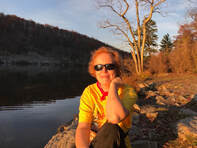 Mary Crosbie howls from Brooklyn. Her work has appeared in Gross and Unlikeable, Blood Bath LitZine and Space Squid. Follow her on Twitter or her website: Www.marycrosbie.com To start with, the TV people were excited about Mars being the closest that it had ever been to earth. Now, mom says I don’t have to go to school so long as I don’t turn on the TV or look out the window. She makes me play games like boarding up the doors. She says it’s fun, but it is not. Neither are the screams outside. I miss the sun’s heat on my face and the cooling rain, but I made a promise—I will not look outside. Even when I recognise neighbors' voices begging for help. Sometimes there are gunshots, or the screaming goes on throughout the night. Mom says they are dreams—all good boys have them, but now I’m starting to think the closeness of Mars is driving mom crazy since the food is running out. I said I didn’t mind going to the store. However, Mom laughed and told me there was more than enough food. The cooked meat tasted like chicken, but when I tried to find my cat, Argo, I couldn’t. Mom says he must have run away, but he’d never do that. Not after I found his collar in the trash can. Now all mom does is cry when she thinks I’m not looking. I wish I knew what to do. I wish that I could help her or look out the window and see Mars’ beauty. Before the TV went off, they said it would be a once-in-a-lifetime thing. That the populace devoured too many trash movies—now was the time to look up to the heavens. But mom won’t let me go outside. She says only naughty children look at Mars. Things are getting so bad that I’m ready to return to school. Staying indoors 24/7 is making me crazy. But when I tell her that, mom just cries more. To pass the time, I pick at forgotten books; some are history, some describe this war God Mars who gave his name to the red planet. I have yet to find ONE nice story about his terrible fury. Everything he threw his crimson light at he destroyed, and I wonder what could be so beautiful about the little red planet now it’s so close to earth. Even though I promised mom not to peek, sometimes I wonder about that a lot.  Matthew Wilson has been published in Star*Line, Night to Dawn magazine, Zimbell House publishing and many more. He is currently editing his first novel and can be found on Twitter. This place… It reminds me of home when the roads used to freeze over. Solid ice. Days when snow was predicted were the only ones I woke up early. I’d set my alarm the night before, wake up without even feeling tired, turn on the TV and watch the local news. My eyes fixed to that scrawling list at the bottom of the screen with the names of all the school districts that had cancelled their classes. Snow days. I remember snow days. How could I forget? They only canceled school when the ice was so thick that even the plow trucks couldn’t break through. Except for that one day. My parents were surprised, weren’t they? School was open, though they delayed the start of classes by two hours. Two hours. Yes, it was two hours. I remember standing at the bus stop. It was later than usual. The sun was out, the wind was harsh. My sister was there. Wasn’t she? Miranda… Miranda, can you hear me? I remember the bus, the harsh wind blowing down on us, and the bus coming around the bend. It was heading towards us—sun glistening off that polished steel, yellow on orange combining to make green: the color of the covered grass; brown once the snow thaws—and it’s driving across the ice-covered road. I can’t see the driver’s face. The sun is reflecting off the windshield. It’s all I can see: the sun. Oh, the sun! It’s reflecting off of everything! The snow, the bus, my sister’s glasses: and it’s shining in my eyes. I can’t see anything. The bus. Wait, there’s the bus. It’s coming this way across the ice. It slips, then-- Where am I? This place… It reminds me of home when the roads used to freeze over. Solid ice. Ethan S. Berry (February 20th, 1996) was raised in West Virginia hollers and has been writing since he was seven years old. Now he lives in San Antonio, Texas with his supporting wife and their two cats: Romeo & Pablo. While he can't help but obsess over the act of writing, he is also a student of psychology and in 2019 he was officially recognized for his contributions as an undergraduate to the field of psychology by the Southwestern Chapter of the American Psychological Association (APA). When Ethan’s not writing, he is either spending time with his wife and cats, getting wrapped up in collaborative art projects (whether it be a producing podcast or a recording sound for a short film), attending classes at the University of Texas in San Antonio, or lounged out somewhere reading a good book with a mug of coffee at his side.
Follow Ethan on Facebook and Instagram Something drips. Interminably slow, heavy, and monotonous, it is a beat at the very edge of consciousness, lulling him slowly back to awareness. There is no other point of reference, the darkness about him absolute, though he can feel the roughness of the stone wall against his back and the smooth coldness of the metal bonds that hold his wrists and ankles tight against it. Flexing his toes, he feels water lap around them. The damp infects his bones. Straining his senses, he searches the cold black air, though he has no idea for what. He has no memory of what has happened, no memory of anything that has gone before, yet he knows that he is waiting, waiting for... something. Then, suddenly, there it is a change in the sound, the drip accelerating until it becomes a trickle, then a cascade. The rising water reaches his knees, his waist, his chest. The coldness of it makes him gasp, presses against his ribcage, forces his lungs to fight for breath. Through his panic, a thought surfaces: there are so very many ways to die–perhaps drowning is not the worst. The water splashes his face. It has reached his chin and will soon be in his mouth, in his nostrils, in his throat. He wonders how long he could hold his breath, or if it might not be better to breathe the deadly liquid in, a swift conclusion to this life that he cannot quite call to mind. Then, as if some faraway valve has been shut down, the gushing water stops. It drips for a moment, then silence returns. Something brushes his leg in the darkness, and in that instant, the sluice gates of his memory burst apart, and he remembers. He remembers the terror in the eyes of his son and the bargain that was struck. He remembers the oozing, milk-white eyes of the beast and the yellowed stumps of teeth that spewed saliva as it shook its awful head in triumph. He remembers his last sight of the boy, running for all he was worth, running because his life depended on it. And he remembers submitting to the fetid embrace of the worm; a living sacrifice, a lamb to the slaughter. A sound disturbs the darkness, a sound as soft and chill as the flick of a serpent’s tongue—a gentle movement of the water, sending saltwater ripples to lap against his lips. The sweet, stagnant smell of decay fills the chamber, announcing the arrival of his host as surely as a fanfare of trumpets. The beast is on the move. Its huge, elongated body cuts effortlessly through the water, scarcely disturbing the surface. His fists clench, a futile act of resistance. There can be no going back, no change to the terms of the contract. In the stinking blackness, he turns his head to the wall and steels himself for what is to come. The water seethes as the creature rises before him, its rank, hot breath burning his cheek. He tries to scream, but it is useless; his voice was taken long ago. He will do what he has always done; take the pain inside himself and await oblivion. Tomorrow he will wake and have no recollection until the dripping starts again.  KB Willson is a British author, specialising in SF, Fantasy, and Horror. As his ‘day job’ requires him to be professionally jolly – he has spent his working life as a performer, everything from theatre to circus via magic and fire-eating – writing enables him to indulge his darker side! He lives beside the sea in Dorset with his wife and dachshund dog, one of whom likes to sit on his lap while he is writing. For more information visit www.kbwillson.com or follow him on Twitter at @kbwillsonauthor. Dr. Eliza Reilly picked up the doll and scratched at the crust of dried blood on its cheek. Its only remaining eye stared up at her, orb-like, lifeless. Nearby, a dog sunk its teeth into an unidentifiable piece of flesh, consuming it violently, tattered strips of denim and all. She hadn’t meant for any of this to happen. No terrorist’s explosive had littered bone fragments and entrails through the dust-shrouded streets of her little hometown. Mother Nature’s wrath had not moved like a wraith down Main Street, splitting the earth at its fault lines. But, She had split Eliza, imperfectly, asymmetrically, so that the frayed pieces could never again become a whole. Her brother was dead. Eliza wouldn’t stand for it. The stages of death had not landed her wearily upon acceptance. Instead, they festered inside her like an open sore, amalgamating into sickness, into obsession. She had poured every fragment of herself and her profession into taking back what Mother Nature had stolen. When she discovered the fungus, a grotesque little organism that could resurrect, albeit enslave, the corpses of some insects, her line between genius and madness blew away like so much salt. The experiments had taken months. A few reanimated rabbit corpses had given her hope, if only because she’d ignored how they had cannibalized each other only minutes after waking. They were animals, after all. Her brother would be different. Last night, on the anniversary of his death, she’d packed up her syringes and driven to St. Gertrude’s Cemetery. Eliza remembered now, as she stood in the aftermath of her genius, the six feet of packed earth that had stood between her and her brother. The raw blisters on her hands reminded her of the hours she’d spent digging, and of the hollow sound a coffin makes when it’s struck with a rusted shovel. Her brother’s sunken cheeks and shriveled lips, pulled back from his teeth in a ghoulish grin, made it easier to jab the needle into his neck. She might have lost her nerve if only she’d recognized his ornery smile, or the dimple in his right cheek. Eliza held her breath. The fungus blossomed, black and malevolent beneath the mottled skin, and then disappeared. She remembered the sharp crack of stiff tendons as her brother’s fingers flexed one by one. The spores swelled beneath parchment-thin flesh. Black veins crept into his neck and fanned like lightning across his face. She watched in horror as his eyelids cracked open, the deflated eyeballs like salt-shriveled slugs inside his skull. Eliza fell backward against the dirt wall of the grave, a scream lodged in her throat. In twitching, unnatural movements, her brother sat up and fixed his black eyes upon her. “Johnny?” she whispered. The creature opened its mouth as if to answer, the skin on its face cracking and exposing a line of yellow teeth. She buried her face in her hands like a child and listened to it claw its way out of the wound in the earth. By the time she had worked up the courage to follow it, the Jacobs family was dead. She found them on the kitchen floor in their shotgun house, their limbs ripped from their bodies, bits of half-consumed brain matter clinging to dish towels and silverware. Grief suffocated her again, its dark fingers cold around her throat. She knelt beside the remains of the youngest girl and squeezed her severed hand. God, what had she done? The hand squeezed back. The family fell upon her all at once, ravenously seizing fistfuls of her hair, tearing at her skin with jagged fingernails and broken teeth. The girl’s grip tightened until she heard the sick crack of bone, and then the pain came. With a savage cry, Eliza ripped herself from them and stumbled out into the street. Blood poured freely from a wound on her forehead and stained the town scarlet. There were more of them. They were everywhere, emerging from the houses and climbing over wrought iron fences. She recognized the faces of her neighbors and friends, twisted now in pain or hatred, or hunger. Soulless moans escaped their bloodstained mouths, a death rattle beneath a Cheshire cat moon. Eliza ran. Gasping for breath, she burst through the doors of the cemetery’s empty church, folded herself into the space beneath the altar, and prayed. The hope she had clung to all these months faded to a bruise. Her brother was dead, really, truly dead. Even as the tears stained her skin, she wondered at the strange blackness that mercifully infested her grief, mutating it into half-recognized craving. Even her shattered hand ceased to throb. It was easier this way, in the dark. By midnight, half the town had been infected, and by dawn, when she finally emerged from her hiding place, they were all dead. Only the dogs remained. As the fungus crept beneath her skin, one of the dogs lifted its head. Her fingers moved without her consent. The dog sniffed the air, and then it ran. 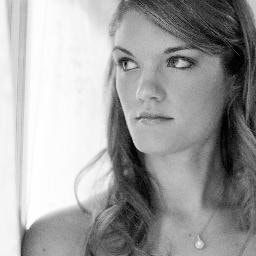 H.B. Diaz is an internationally published gothic horror writer and HWA member whose short stories have been featured in publications from the likes of Horror Tree, ID Press, Flame Tree Press, and Sirens Call Publications, among others. She lives with her husband and son in a historic (and likely haunted) East Coast town. Follow her on Twitter and her website: www.authorhbdiaz.com/ You dart into the twilight, your wife’s voice, her pleas, trailing behind you. The screen door slaps shut, an abrupt end to a suffocating conversation. Through the mesh of the door, you hear the words, “Stay. Let’s talk it out.” But you don’t stay. You don’t talk it out. Instead, you run. Like always. You hit the street, shifting into a jog. The asphalt, slick with fresh rainfall, shimmers like onyx under the streetlights. On any other night, you’d be captured by this iridescence. But tonight, your eyes don’t linger on your footsteps. No. They’re set ahead. On escape from the trappings of modernity: the passive-aggressive nature of your relationship, the mundanity of your chair-bound 9-to-5. Running frees you. It reduces you to a single purpose: forward. And while in motion, you can focus on just that. Everything else falls away. Momentarily, at least. Head level, spine straight, you pump your arms close to your chest, allowing your hands to wobble limp at the wrists. Your forefeet slap the pavement, the soft steps swishing like a distant cicada song. Your wife’s voice chases you through the cookie-cutter lanes of your suburban neighborhood, reverberating between the single-story bungalows, each one unimaginative and uniform in its architecture. Drizzles start. They pitter-patter, pitter-patter, drowning out the noise and coalescing with the sweat beads forming on your skin, blurring the boundary between yourself and the universe. You near the end of the cul-de-sac. Ahead, thunderheads brood above the winter-stripped forest. You bound over the curb and head for the overgrown trailhead near the tree line. The bare branches of the forest reach out as if reclaiming the manicured lawn reminding you that civilization is a collective dream—the wild waits on society’s peripheries, ready to reclaim its dominion. A sharp crack, paired with a bulbous white flash, emanates from on high. A streak of translucent lightning slithers from the clouds. It doesn’t make sense, this psychedelic shimmer, but the atmospheric trick doesn’t stop you. You push forward towards the trail. The grass shifts to dirt. Scattered pebbles jab the bottoms of your feet. But you don’t wince. You grit your teeth and smile. The forest wraps you in its embrace. Illuminated by the glow of your headlamp, the trail snakes through the brush, the long grass high as your head. Branches scrape your elbows, shins, and knees. There’s pain, but the repetition of your movements dulls the sensation. A biochemical urge, part of an ancient natural reward system, drives you forward. You imagine yourself as a predator chasing prey. This is how we used to live, you tell yourself. Our ancestors descended from the trees so our legs could carry us. Then we exchanged our freedom for creature comforts. For huts, houses, and offices. The trail zigs and zags, skirting past overlooks that abut a polluted river. You hop over logs and roots, causing dead leaves to whirl in your wake. Every so often, you catch ember eyes in the reflective glow of your headlamp, but you never catch sight of the forest creature the eyes belong to. You forge ahead, your body a blade carving through the universe. Your mind is absent of any thought besides the task. In your ecstasy, you forget that the creature comforts—the huts, the houses, the offices—were erected as forms of protection, as boundaries between ourselves and the wild. You forget that out in nature, humans aren’t just predators. They’re also prey. The trail ends at a beach sheltered by a weeping willow. Your steps form depressions in the sand as your calves tighten in response to the uneven terrain. Whispers burble from the river ahead, lulling you like a sweet enchantment. “Just a little further.” You stop at the banks of the river, lacing your fingers behind your head and stretching backward. But it’s no use. Cramps skewer you between the ribs. Your lungs sear with each breath. Nail aches plague your feet, shins, and knees, their sharp pinpricks striking irregularly as if scraping bone. You slip your shoes off and dig your toes into the sand, pushing against the pain. You step into the river, the water a cold salve that laps at your feet. In the cold calm, you collect your thoughts. By the time you get home, they’ll be asleep, you think. The argument will be forgotten. Tomorrow will be another day. This is why you run: for the clarity you gain through exertion. You turn to leave but are stopped by a cerebral shudder, an alarm in your reptilian brain that indicates you’re being watched. You feel it, the devouring gaze of unseen eyes. Your headlight illuminates a thick layer of fog above the water’s surface. You can’t see the other side of the river, but you hear something splash beyond the swirling veil. Suddenly, a guttural screech fills the soundscape, the sonic assault drilling into your skull and causing you to double over. You wobble in the water as a cataclysmic rift splits your consciousness, opening you to a different plane of reality, one blooming with malevolence. A predator lies in wait. It seeps into this. You dry heave into the water, choking on the scent of sulfur. Through hot, teary eyes, you see something break the water’s surface. Whatever it is, its black-scaled body moves as if unencumbered by vertebrae. The sound drones on, paralyzing you in place. You recognize something familiar in the discordant thrum. The call of the predator. As your mind falls down the well of primordial memory, you grow blind to the present plane. Starbursts assault your eyes. White noise bathes your senses. Amidst the humdrum, you don’t notice the crocodilian-like snout inching closer, nor the stalk, snail-like eyes peeking above the water’s surface. No, you don’t notice them at all. All you notice is a sudden cacophonous silence and then the sound of the ambush. 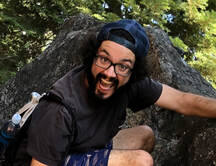 G.D. Watry is a writer from California. His fiction and poetry have been published in Like The Wind Magazine, Pantheon Magazine, OCCULUM, and Hinnom Magazine, among other publications. You can follow him on Twitter and on Instagram. |
Archives
June 2024
Categories
All
|


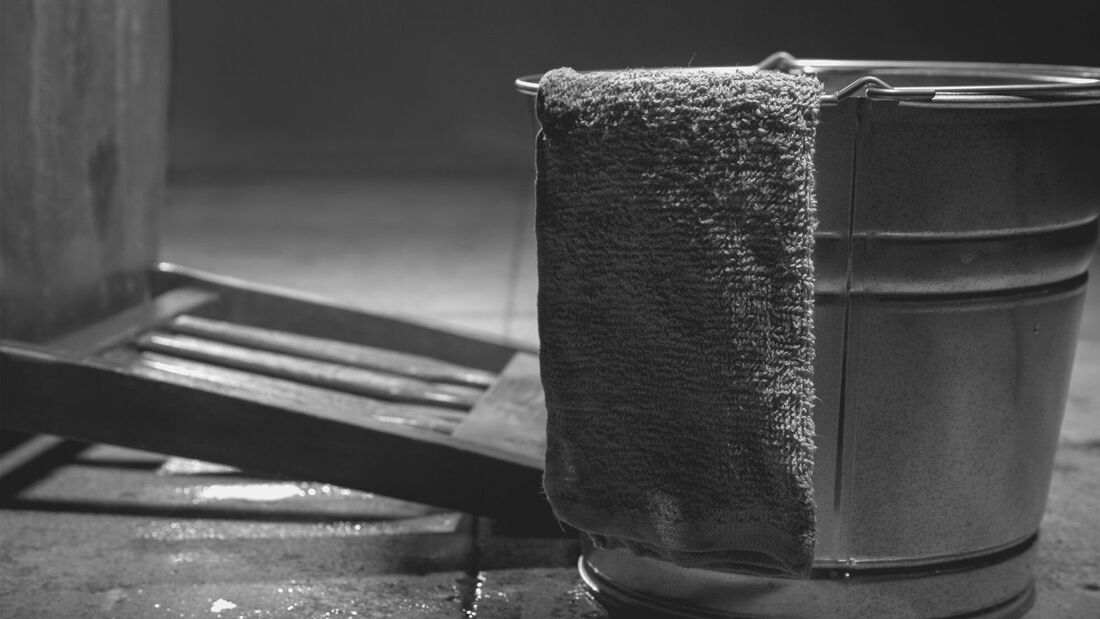

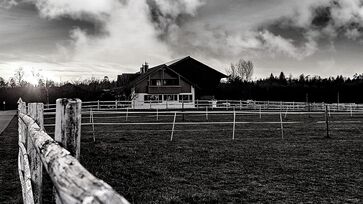



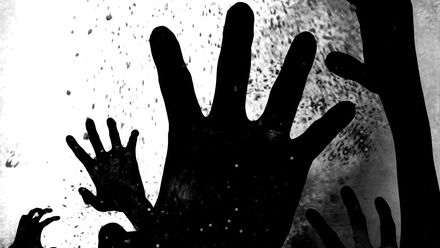
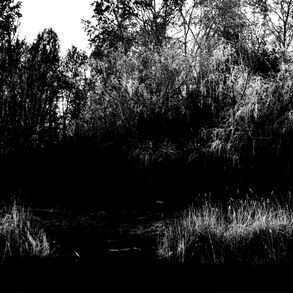
 RSS Feed
RSS Feed